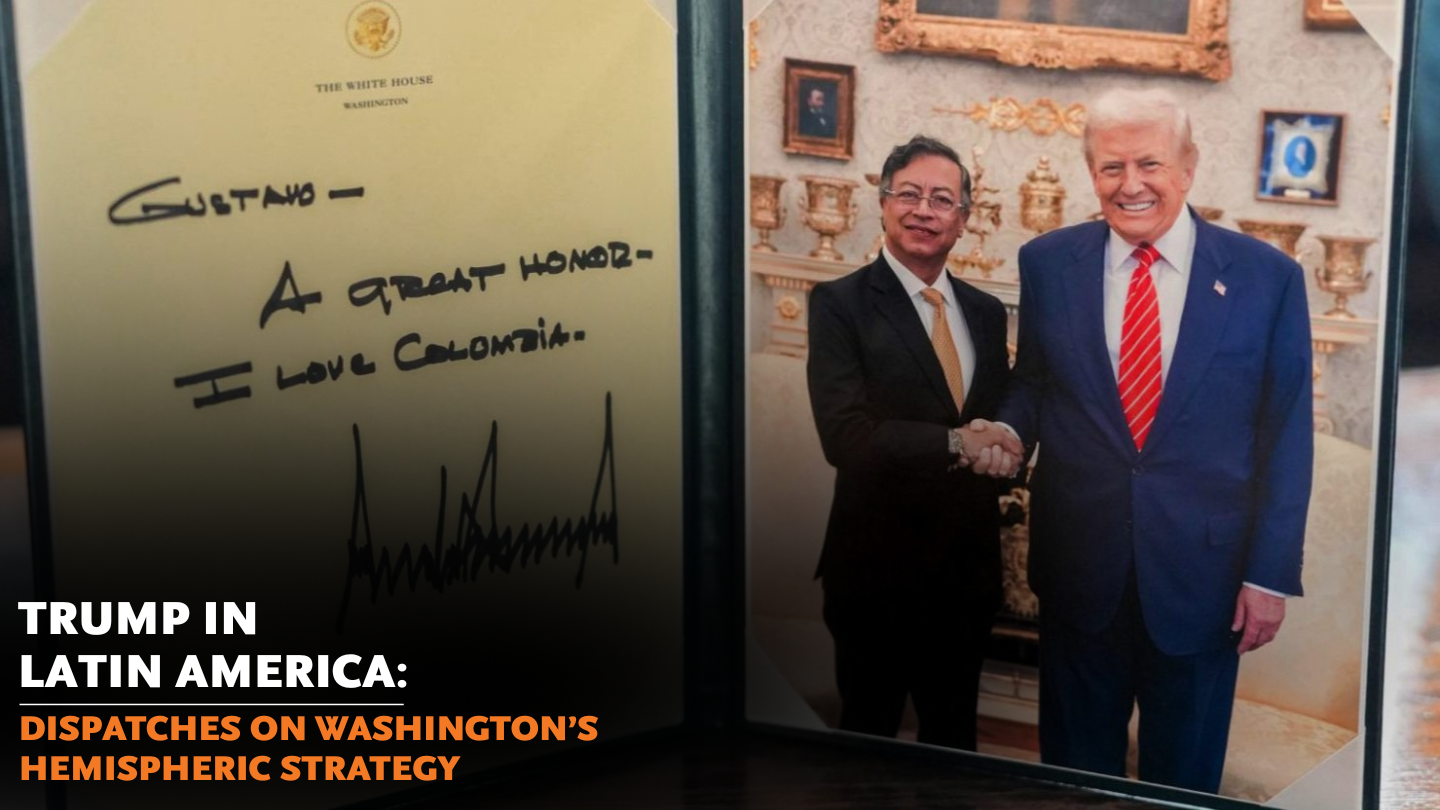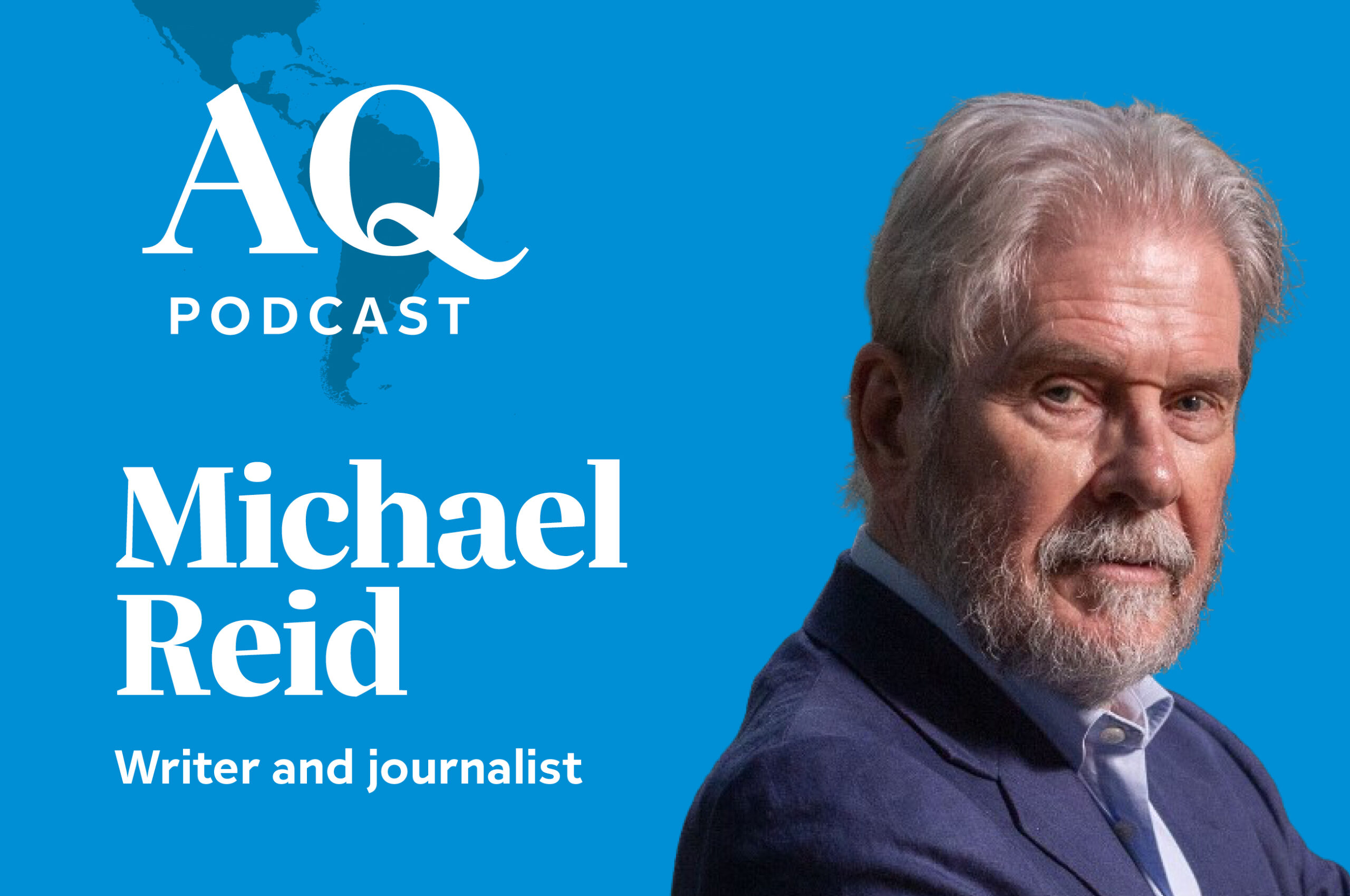42nd Washington Conference on the Americas - Global Recovery: The Regional View
42nd Washington Conference on the Americas - Global Recovery: The Regional View
COA's annual event convened senior hemispheric leaders, including U.S. House Speaker John Boehner, U.S. Secretary of Homeland Security Janet Napolitano, and Argentine Vice President Amado Boudou, to dialogue on U.S. partnerships with Latin America as well as the growing importance of Asia-Pacific ties.
Council of the Americas brought together senior hemispheric officials to dialogue with private-sector leaders and government representatives at the 42nd annual Washington Conference on the Americas at the U.S. State Department on May 8. The conference, COA’s annual premier Washington event, allowed speakers to focus on prioritizing U.S. partnerships with Latin America, as well as the growing importance of regional trade with Asia-Pacific countries.
Speakers include:
- Deputy Secretary William Burns, U.S. Department of State
- Assistant Secretary for Western Hemisphere Affairs Roberta Jacobson, U.S. Department of State
- Minister of Foreign Affairs Alfredo Moreno, Chile
- Speaker of the House John Boehner, U.S. House of Representatives
- Ambassador Ron Kirk, U.S. Trade Representative
- Chairman and President Fred Hochberg, U.S. Export-Import Bank
- Vice President Amado Boudou, Argentina
- Secretary Janet Napolitano, U.S. Department of Homeland Security
Ahead of Speaker of the U.S. House of Representatives John Boehner’s remarks, AS/COA Chairman John Negroponte recognized him with the COA Chairman’s Leadership Award for the speaker’s two decades of commitment to open markets and, more recently, for his efforts to help usher through passage of the U.S. trade pacts with Colombia and Panama. “Without his leadership, the agreements would not have passed together and with such strong bipartisan support,” said Chairman Negroponte.
The speaker opened by voicing strong support for the Colombia and Panama free-trade agreements, as well as security pacts such as Plan Colombia and the Merida Initiative in Mexico. In January, shortly after passage of the Latin American trade deals, Boehner led a congressional delegation to Brazil, Colombia, and Mexico. While the delegation was in Colombia, Panamanian President Ricardo Martinelli made an unscheduled trip to Bogota to celebrate the passage of the trade agreements. He made the trip “for the same reason we did,” said Speaker Boehner: to recognize that “[t]he friendship and economic partnership amongst our countries is vital to the future of the region.” The speaker went further and expressed support for creating a hemispheric free-market zone. “The nations of the Americas share a hemisphere, but we also share a lot more than that. We share a respect for democracy and an appreciation for the superiority of a free economy,” he said. “We also share an opportunity, a chance to secure freedom, prosperity, and security for all of our people by working together.”
Speaker Boehner also warned of three threats to the region. First, he cautioned against Iran’s attempts to gain a foothold in the Americas, particularly in Cuba and Venezuela. Second, he identified Latin American criminal organizations and insurgent groups as a destabilizing force that could weaken democracies. Third, he identified the risk of a waning U.S. commitment to the region as the greatest threat—and one that could worsen the other two. “The economic potential of Latin America will never be reached if the forces of lawlessness in the region sense that the United States is no longer engaged and committed to their eradication,” said the speaker. “The best defense against an expansion of Iranian influence in Latin America—and against the destructive aspirations of international criminals in the region—is for the United States to double down on a policy of direct engagement.”
On that subject, Boehner highlighted Plan Colombia as an important lesson in which U.S. aid boosted security and helped Colombia develop a training capacity, which can now support partnering countries. Despite the fact that many in Washington seek to cut aid for Latin American security, the speaker cautioned: “Now is not the time to turn the page on Plan Colombia,” adding: “[T]he U.S. must be clear that we will not disengage in the fight for free markets and free, secure people.” The speaker said that, in return, Latin American countries must respect rule of law and honor international legal commitments and decisions. “We should strive for the kind of relationship where we’re never too busy to stop and help a neighbor,” concluded Speaker Boehner. “Free markets, free people, are the key to a secure, prosperous future for all of the Americas.”
One week before the entry into force of the U.S.-Colombia Free Trade Agreement, Edward Luce of the Financial Times spoke with U.S. Trade Representative Ron Kirk and President of the U.S. Export Import (Ex-Im) Bank Fred Hochberg. The conversation focused on President Barack Obama's record on trade, the ability of the United States to provide competitive financing for U.S. businesses overseas, and the U.S. trade agenda.
With global protectionism on the rise and political and economic uncertainty in Europe, Ambassador Kirk spoke of establishing a more balanced approach to trade, one that looks beyond the transatlantic relationship and embraces "a thoughtful economic model." He said that U.S. economic recovery has been due, in part, to trade, which has grown 34 percent in the last two years. He noted President Obama's trade leadership, citing the initiative to double exports in five years and the ratification of the Colombia, Korea, and Panama free trade agreements.
As the Office of the U.S. Trade Representative works to open up export markets, the Ex-Im Bank works to open up financing opportunities for U.S. companies operating in international markets. The charter for the Ex-Im Bank is up for renewal, and a House of Representatives proposal to extend its mandate would come with a higher credit ceiling but also new constraints. Luce observed that counterpart banks in countries such as China and Germany have up to four times the credit ceilings as a proportion of GDP. Describing such countries' support to exporters as a "giant bear hug," Hochberg noted that the United States provides more of a "mother-in-law's kiss," polite but not very strong.
Looking ahead, Kirk said that the United States "is willing to lead" on trade. He noted that President Obama made the decision to join the Trans-Pacific Partnership (TPP), which Ambassador Kirk called an opportunity to be part of "one of the most dynamic economic zones in the world." Turning back to the Western Hemisphere, including Canada and Mexico, the United States' two biggest trading partners, Kirk said he would welcome them—as well as Japan—into the TPP as long as they accept the high standards already agreed to. He mentioned that non-Asia-Pacific countries are requesting to join the TPP, and that the United States is open to exploring all opportunities, even a Free Trade Area of the Americas.








